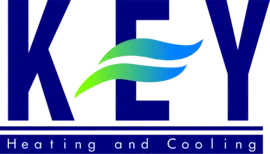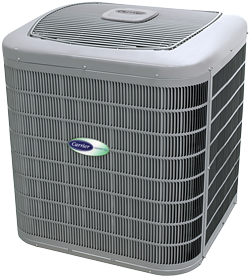Bradfordville, FL, known for its warm, humid weather, offers a tropical climate with occasional thunderstorms, heavy rainfall, and stormy conditions, especially during hurricane season. With this type of weather, homeowners face unique challenges when it comes to maintaining a comfortable indoor environment. As storms approach, your HVAC system can be your home’s unsung hero—keeping you cool during the heat or warm when sudden weather changes strike. But, like all heroes, it needs preparation to perform at its best when it’s most needed.
Storm seasons in Florida can be unpredictable, and for many homeowners, protecting their HVAC system from storm damage is just as important as securing windows and roofs. In this blog, we’ll dive into what Bradfordville homeowners need to know to prepare their HVAC systems for storm season, so you can enjoy peace of mind no matter what Mother Nature throws your way.
Why Preparing Your HVAC System for Storm Season Is Crucial
Your HVAC system plays a vital role in maintaining your home’s comfort and safety during storms. While we often think of HVAC maintenance as something related to regular wear and tear, hurricane season introduces several unique risks, such as flooding, power surges, and debris damage. By taking proactive steps to prepare your system, you can help prevent costly repairs, reduce downtime, and ensure your family’s comfort throughout the storm season.
Moreover, HVAC systems are significant investments for homeowners. Protecting this essential asset from potential storm damage can save you thousands of dollars in repairs or even replacement. An unprepared HVAC system can also lead to inefficient operation, leading to higher energy bills and reduced comfort.
So, how can you ensure that your system is ready for the next big storm? Let’s go over the key steps you can take to safeguard your HVAC system before storm season hits.
1. Schedule a Pre-Storm HVAC Inspection
Before the storm season gets underway, scheduling a professional HVAC inspection is one of the smartest moves you can make. A licensed technician from a reputable service provider like Key Heating and Cooling can identify any existing issues and fix them before they are exacerbated by extreme weather.
What does a pre-storm inspection include?
- Checking refrigerant levels: Low refrigerant levels can strain your HVAC system, reducing its efficiency, and overworking it during intense weather.
- Examining electrical connections: Florida storms often come with lightning and power surges, which can damage HVAC electrical components. Your technician will inspect for any loose or worn-out wires to minimize this risk.
- Assessing drainage systems: A clogged or inefficient drainage system can lead to water pooling around your unit, especially during heavy rain, which increases the risk of flooding.
- Testing system performance: The technician will ensure your system is running efficiently so it won’t overwork itself in an emergency.
Regular inspections are not just about finding problems—they’re about optimizing the performance of your system so it can handle the rigors of storm season with ease. According to the U.S. Department of Energy, maintaining your HVAC system through regular checkups can improve efficiency by up to 15%.
2. Protect Your Outdoor Unit from Debris and Flooding
Your outdoor HVAC unit, also known as the condenser, is particularly vulnerable during storms. High winds can pick up debris such as branches, leaves, and dirt, which can damage or block the unit’s fan and coils. Additionally, heavy rains or flooding can cause water damage, corrosion, or even permanent failure if the water levels rise too high.
How can you protect your outdoor unit?
- Install a protective cover: A fitted HVAC cover can shield your unit from falling debris, heavy rain, and strong winds. Be sure to remove the cover after the storm passes to avoid trapping moisture inside.
- Clear the area around the unit: Make sure there are no overhanging branches, loose items, or clutter near your condenser that could become airborne projectiles.
- Elevate the unit: In flood-prone areas, consider elevating your outdoor unit to prevent water from reaching critical components. Elevating it by just a few inches can make a significant difference in preventing flood damage.
According to the Federal Emergency Management Agency (FEMA), even a few inches of water can cause irreparable damage to an HVAC system, which is why elevation is such a crucial step in flood-prone regions like Bradfordville.
3. Invest in a Surge Protector for Your HVAC System
Power surges are common during storms, especially in Florida, where thunderstorms and lightning strikes are frequent. A power surge can cause a sudden spike in voltage that could damage your HVAC’s electrical components, leading to expensive repairs or complete system failure.
How does a surge protector work?
A surge protector acts as a shield between your HVAC system and the electrical grid. When a power surge occurs, the protector diverts the excess electricity away from your HVAC system, preventing damage to critical components like the compressor and thermostat.
Investing in a whole-house surge protector or one specifically for your HVAC system is a smart move. It’s estimated that power surges cause about $1 billion in damage to electrical equipment each year, and your HVAC system is one of the most valuable pieces of equipment in your home.
4. Turn Off Your HVAC System During Severe Weather
While your HVAC system can provide comfort leading up to a storm, it’s often best to turn it off once severe weather hits. Why? Because running your system during extreme weather conditions could lead to unnecessary damage.
What are the benefits of shutting it down?
- Prevent electrical damage: By turning off your system, you avoid the risk of electrical damage caused by power surges or lightning strikes.
- Avoid mechanical strain: During a storm, your HVAC system has to work much harder to maintain indoor temperatures, especially if there are strong winds and fluctuating temperatures. This can strain your system and increase wear and tear.
- Minimize flood risks: If water enters your HVAC system while it’s running, it could cause severe damage. Shutting it down can prevent this from happening.
5. Check Your Ductwork for Storm Readiness
It’s not just the outdoor unit that needs attention—your home’s ductwork can also be affected by storm season. Leaky ducts can allow warm air, moisture, or even debris into your system, reducing its efficiency and potentially leading to mold growth.
How to prepare your ductwork:
- Seal any leaks: A professional can inspect your ducts and seal any leaks to ensure maximum efficiency.
- Insulate your ducts: Proper insulation can help regulate the temperature inside your ducts, preventing condensation from forming, which is especially important during humid storms.
- Check for blockages: Storm debris, including dust and dirt, can accumulate in your ductwork over time. Having your ducts cleaned before the storm season ensures that airflow remains unobstructed.
The Environmental Protection Agency (EPA) states that properly sealing and insulating your ductwork can improve your HVAC system’s efficiency by as much as 20%, which can lead to lower energy bills and improved indoor comfort.
6. Create an HVAC Emergency Plan
Preparation isn’t just about your equipment—it’s also about having a plan in place if something goes wrong. Storms can be unpredictable, and knowing what to do in case of an HVAC emergency can save you time, stress, and money.
What should your HVAC emergency plan include?
- Know how to turn off your system: In case of a power surge or flooding, you may need to quickly turn off your system to prevent damage. Familiarize yourself with the shutoff procedure for your HVAC system.
- Have Key Heating and Cooling’s contact information ready: If your HVAC system is damaged during a storm, you’ll want to contact a professional immediately. Keep our contact information handy so you can get in touch quickly.
- Backup power solutions: Consider investing in a generator to keep your HVAC system running in the event of a power outage. This can be especially important if you have vulnerable family members who rely on air conditioning for health reasons.
For HVAC Services in Bradfordville, FL, Contact Key Heating and Cooling Today
Storm season doesn’t have to mean stress for your HVAC system. By taking the necessary steps to prepare, you can protect your investment and keep your family comfortable no matter the weather. Whether it’s scheduling a pre-storm inspection, installing a surge protector, or simply clearing debris from your outdoor unit, proactive maintenance can make all the difference.
If you’re in Bradfordville, FL, and need help preparing your HVAC system for storm season, Key Heating and Cooling is here to provide professional, reliable services. Our experienced technicians are trained to handle all aspects of storm preparation, from inspections to emergency repairs.
Don’t wait until the next storm hits—contact Key Heating and Cooling today to schedule your pre-storm HVAC inspection and keep your system running smoothly all season long!
Call Key Heating and Cooling or visit our website to learn more about how we can help you protect your HVAC system during Florida’s unpredictable storm season.




